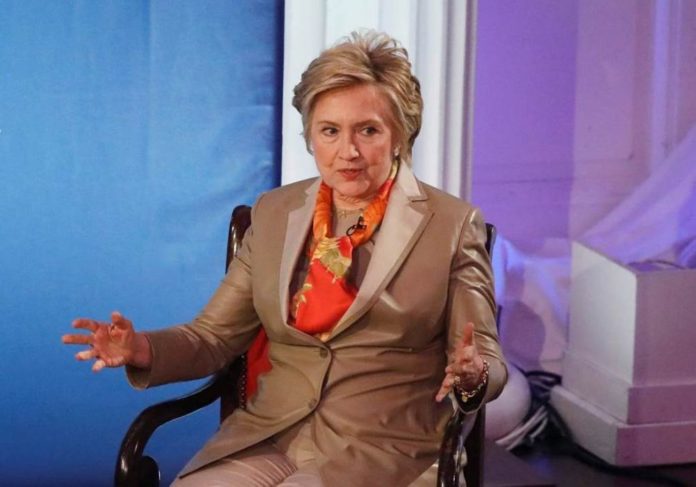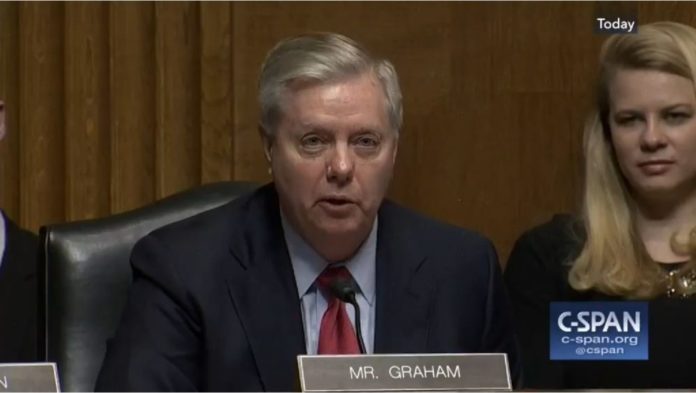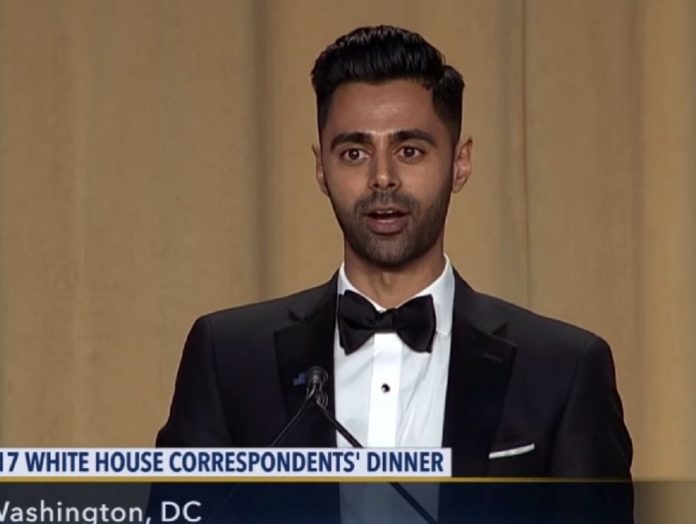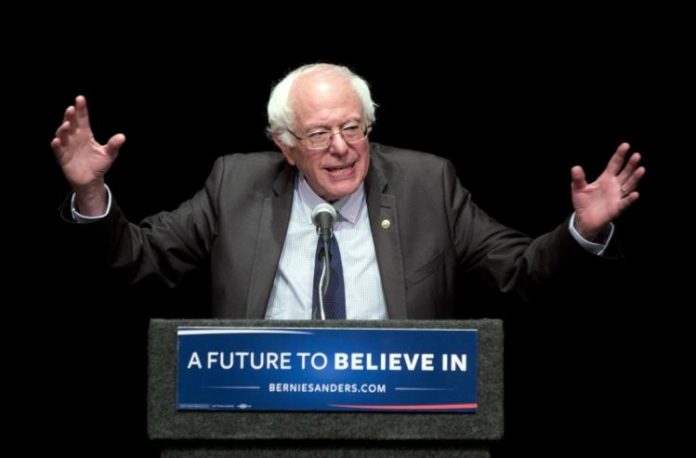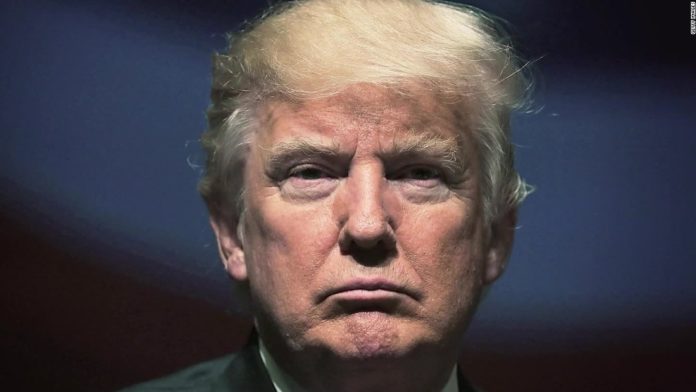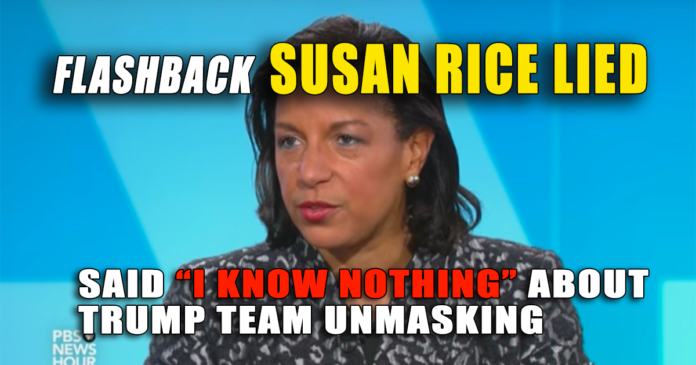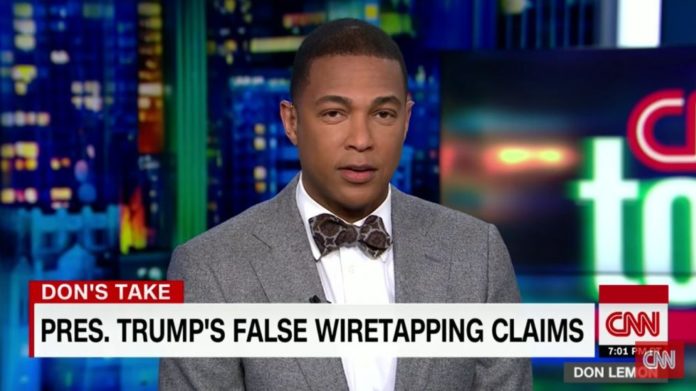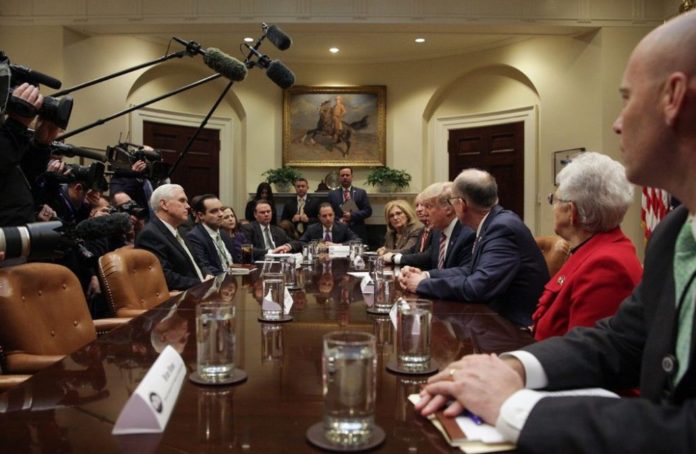Since Donald Trump won the election for president in November, U.S. media outlets have received and eagerly published selective, damaging leaks about him from anonymous intelligence officials. The general effort, which appeared highly coordinated, was to delegitimize Trump’s election and paint him as a stooge of Russia or otherwise unfit for office.
The media outlets claimed their information came from very highly placed officials in the Obama administration. Even if they hadn’t claimed their anonymous sources were Obama officials, the information they were leaking, such as the name of a U.S. citizen caught up in surveillance by the Obama administration, would have been known only by highly placed intelligence officials.
As the publishers of the information that was illegally disclosed, many media outlets weren’t keen to make a story, much less a big story, about the leak campaign by Obama officials. This despite the fact that the same Obama officials who had run the infamous Iran Echo Chamber operation, in which reporters were duped into reporting the Obama administration’s spin on the Iran deal, had bragged that they’d continue a highly developed communications operation in the Trump era.
In early March, Donald Trump tweeted out a series of unsubstantiated claims:




Now, President Trump is not known for being precise with either his language or his allegations, and a hostile media rightly took him to the task. It’s not unimportant to debunk the idea that Barack Obama personally got down on all fours and crawled into the phone system at Trump Tower to lay down some wiretaps on a particular date, and many media figures did so immediately.
Yet as to the larger question of whether Trump and his team were generally surveilled by the Obama administration before, during, or after the campaign, the media have a lack of interest to the point they appear comatose. The collection of information on Trump’s team was undeniable, as it was being leaked to the Washington Post and other outlets, so the lack of journalistic curiosity has been perplexing.
Two weeks ago, the chair of the House Intelligence Committee, Rep. Devin Nunes, revealed that he’d seen dozens of reports featuring unmasked information on Trump and his associates and family members. He said these reports arose out of incidental collection during FISA surveillance, had nothing to do with Russia, were disseminated widely throughout the intelligence agencies, and contained little to no foreign intelligence value.
It should go without saying that the country’s powerful surveillance capabilities are not to be used against American citizens so that such unmasking should be exceedingly rare, be done for only the strongest reasons, and make pains to avoid the appearance of politicization. Nunes said the incidental collection might be legal but the unmasked dissemination of information about political opponents was disconcerting.
Despite the bombshell allegations, many in the media responded by downplaying or denigrating his news, distracting with process complaints, or quickly thrown-together stories from anonymous sources with no evidence claiming more breathless wrongdoing with Russia.
On Monday, Eli Lake of Bloomberg Views reported that sources said: “Susan Rice requested the identities of U.S. persons in raw intelligence reports on dozens of occasions that connect to the Donald Trump transition and campaign, according to U.S. officials familiar with the matter.” Ezra Cohen-Watnick, the National Security Council’s senior director for intelligence, was conducting a review of unmasking procedures when he “discovered Rice’s multiple requests to unmask U.S. persons in intelligence reports that related to Trump transition activities.”
Susan Rice was Obama’s National Security Advisor for his second term.
Again, many in the media are attempting to downplay, denigrate and distract, some are doing so shamelessly. Here are five reasons why this is a story worth covering:
1) Susan Rice’s Story Changed Dramatically From Two Weeks Ago
Two weeks ago, PBS’ Judy Woodruff asked Rice a very general question about Nunes’ claims:
JUDY WOODRUFF: I began by asking about the allegations leveled today by House Intelligence Committee Chairman Devin Nunes that Trump transition officials, including the president, may have been swept up in surveillance of foreigners at the end of the Obama administration.
SUSAN RICE, Former U.S. National Security Adviser: I know nothing about this. I was surprised to see reports from Chairman Nunes on that count today.
I know nothing about this, she said.
Yesterday, in a damage control interview with prominent Democratic journalist Andrea Mitchell, Rice admitted her unmasking efforts and said they were routine. Mitchell’s 16-minute interview involved no tough questions. Mitchell asked, “Did you seek to unmask the names of people involved in the Trump transition?” Rice responded in the Clintonian fashion, “Absolutely not for any political purposes.” A natural follow-up would have been if she requested the unmasking for any other purpose. It didn’t occur to Mitchell. Instead, she followed-up with the related question, “Did you leak?” to which Rice responded, somewhat confusingly, “I leaked nothing to nobody.”
Somehow Rice tried to claim later that her initial statement of having no clue about Nunes’ earlier claim was not at odds with her 16-minute answer about her unmasking efforts.
Rice has a reputation for dishonesty, most notably for her claim that a September 11, 2012, attack in Libya that killed four Americans was a spontaneous result of anger at a video critical of Islam. At the time she said this, the State Department knew well that it was a coordinated terrorist attack.
Rice also falsely claimed that Bowe Bergdahl “served the United States with honor and distinction,” when critics began raising questions about why President Obama traded high-value Taliban detainees and a ransom for the Army deserter. Bergdahl is expected to face a court-martial in August for desertion and misbehavior before the enemy. His desertion was already known at the time Rice made her comments.
2) The Unmasking Was Related To Political Information
When Nunes first alerted the public about his concerns over the unmasking and dissemination, he noted that the information had nothing to do with Russia and had little to no intelligence value. Lake reported that Rice’s multiple unmasking requests were related to reports on Trump transition activities. She is said to have requested the identities of Americans in reports of monitored conversations between foreign officials discussing the Trump transition and in surveilled contact between the Trump team and monitored foreign officials.
“One U.S. official familiar with the reports said they contained valuable political information on the Trump transition such as whom the Trump team was meeting, the views of Trump associates on foreign policy matters and plans for the incoming administration,” according to Lake.
When Rice gave her interview to the friendly journalist Mitchell, she gave a hypothetical example of when it would be appropriate to request an unmasking of a U.S. citizen’s name that was caught up in foreign surveillance. She said that if two foreigners were talking about a terrorist attack to be committed with a U.S. citizen, she would seek out that name. That’s a great hypothetical. And no one is making the claim that Susan Rice sought to unmask a Trump family member or transition member’s name because she believed they were about to set off a bomb. They are making the claim that the information in the reports was politically valuable and related to the Trump transition.
3) Susan Rice Worked In The White House
Rice was known as Obama’s “right-hand woman,” “like a sister,” and was his National Security Advisor throughout his second term.
Weeks ago, diplomat Richard Grennell said that if Rice were involved, that would implicate President Obama:
‘But within that realm there could have easily been a political calculation to listen in, and then to take those transcripts and the summaries of those transcripts, make sure that those in the NSC and the political people – like Ben Rhodes and Susan Rice – make sure that they have them so they can leak them to reporters.’
‘I think that it would be easy to figure out if Susan Rice and Ben Rhodes knew about this,’ he added, ‘because if they did, clearly President Obama knew about it.’
Even if Rice wasn’t working with Obama on this effort or informing him of her activities, her role as National Security Advisor means her unmasking request in this instance doesn’t make sense, according to Andrew McCarthy. If the identities of U.S. citizens had intelligence value, it would have been unmasked by agencies that conduct investigations, he wrote:
Consequently, if unmasking was relevant to the Russia investigation, it would have been done by those three agencies. And if it had been critical to know the identities of Americans caught up in other foreign intelligence efforts, the agencies that collect the information and conduct investigations would have unmasked it. Because they are the agencies that collect and refine intelligence ‘products’ for the rest of the ‘intelligence community,’ they are responsible for any unmasking; and they do it under ‘minimization’ standards that FBI Director James Comey, in recent congressional testimony, described as ‘obsessive’ in their determination to protect the identities and privacy of Americans.
Understand: There would have been no intelligence need for Susan Rice to ask for identities to be unmasked. If there had been a real need to reveal the identities — an intelligence need based on American interests — the unmasking would have been done by the investigating agencies. The national-security adviser is not an investigator. She is a White House staffer. The president’s staff is a consumer of intelligence, not a generator or collector of it. If Susan Rice was unmasking Americans, it was not to fulfill an intelligence need based on American interests; it was to fulfill a political desire based on Democratic party interests.
It is unclear what President Obama knew about Rice’s successful request to unmask information on Trump transition members.
4) This Substantiates Nunes’ Claim
When Nunes told the public that information about the Trump team had been collected, unmasked, and widely disseminated, many media figures questioned the legitimacy of his claim. With the news that no less than Susan Rice requested unmasking of political operatives, it appears that Nunes was onto something.
Also of note, Rep. Adam Schiff, the ranking Democratic member of the committee, had been very upset with Nunes for telling the public and the White House about the reports he’d seen before briefing the committee. However, after Schiff saw the information, he more or less went quiet. He didn’t say the reports were a distraction or unimportant, unlike other Democratic operatives.
5) Civil Liberties Questions Remain
The most frequent defense of the Obama administration’s unmasking efforts is that incidental information collection on U.S. citizens is routine and that requests to unmask that information about U.S. citizens are also routine. When we learn more about the widespread dissemination of such information, we can anticipate that the media and other Democrats will say that such dissemination is more than routine.
When Nunes revealed the collection, unmasking, and dissemination news, he specifically referenced the incidental information collection on members of Congress during the Iran deal. The U.S. spies on foreign leaders, including Benjamin Netanyahu and his advisors. As a result, the Obama administration picked up politically valuable information:
White House officials believed the intercepted information could be valuable to counter Mr. Netanyahu’s campaign. They also recognized that asking for it was politically risky. So, wary of a paper trail stemming from a request, the White House let the NSA decide what to share and what to withhold, officials said. ‘We didn’t say, ‘Do it,’ ‘ a senior U.S. official said. ‘We didn’t say, ‘Don’t do it.’ ‘
Stepped-up NSA eavesdropping revealed to the White House how Mr. Netanyahu and his advisers had leaked details of the U.S.-Iran negotiations—learned through Israeli spying operations—to undermine the talks; coordinated talking points with Jewish-American groups against the deal; and asked undecided lawmakers what it would take to win their votes, according to current and former officials familiar with the intercepts.
The Bush administration also collected and used information on members of Congress this way.
In some ways, this “routine” defense of collecting and disseminating information on political adversaries is the most disconcerting. The federal government’s surveillance powers are intense, from metadata collection to surveillance of communications. Such information is easily weaponized and exceedingly difficult to oversee for accountability purposes.
As one journalist who used to be worried about such things wrote a few years ago:
Instead, the NSA’s approach of grabbing up every bit of information that it can guarantees that the metadata and sometimes even the content of legislator communications are swept up, and will continue to be available to a secretive class of executive branch employees for years to come. There is an obvious potential that this will be exploited with abusive intent–it isn’t like we’ve never had a president try to spy on his political opponents before! But even absent any nefarious motives, incidentally collected data could damage the integrity of our political system.
Members of the media should try to cover, rather than cover up, this aspect of the story. The civil liberties of U.S. citizens are of vital importance and the unmasking of information on them should not be routine, not regular, and not a light matter.
The media have thousands of questions to force answers on regarding this important story. As Ari Fleischer wrote on Twitter:
About Susan Rice: The President’s National Security Advisor has authority to request unmasking of American names from intel agencies.
But in this instance, I am stunned by the lack of curiosity most media have shown about the facts and circumstances present here.
This is a good example of media giving soft coverage to President Obama while they’re hard on the GOP in general & Trump in particular.
Bear in mind, Rice is the official who praised Bowe Bergdahl for his ‘honorable service’ & claimed he was captured ‘on the battlefield.’
She also said two weeks ago in a TV interview that she didn’t know anything about the unmasking.
I would have thought the media would ask tough questions. There is no reason this should be a FOX News and conservative press issue only.
If I were a reporter, I would want to know why Rice sought the unmasking. The FBI is investigating possible Trump collusion, not the WH.
How often did she ask? What reasons did she give? (Each request is tracked and cataloged in writing by the NSA. A procedure exists.)
The info would have been provided ONLY to her as the requester. It is highly classified. Did she share it? With whom? Why?
If she shared it with anyone, why did she do so? What did they do with it? Did they give it to the media or tell media about it?
One of the reasons we live in a polarized era is because too many reporters look the other way at issues like this. Bias is real.
It’s not too late. The press knows how to dig and get answers. I hope they do so.
It’s not just Rice. She wasn’t the only person to request the unmasking of Trump officials regarding politically sensitive operations, and she wasn’t the person who requested that Flynn’s name be unmasked, meaning she requested at least one other Trump associate’s unmasking. We still don’t know who committed the crime of leaking Flynn’s name to the Washington Post. It’s time to start working on covering this story, rather than running interference for anonymous sources.


